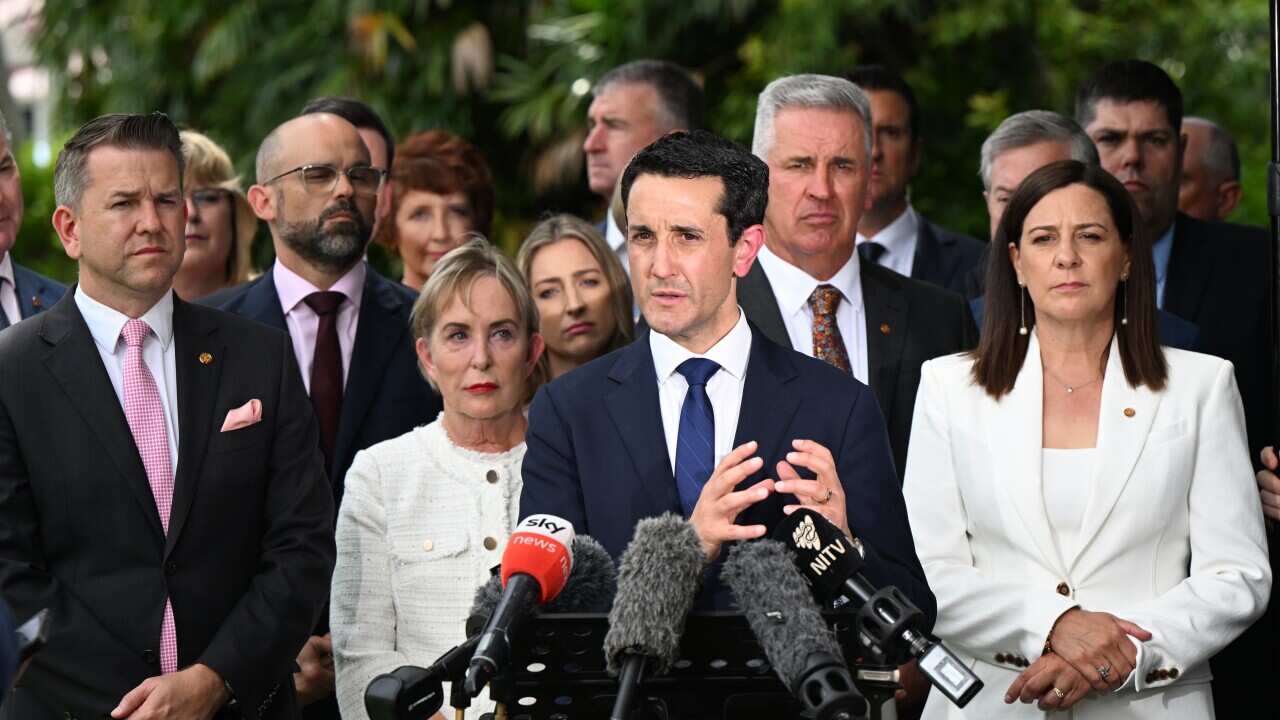One of Australia’s best-known Aboriginal actors, a tireless advocate for Indigenous equality and a Brazilian Jiu Jitsu world champion are among the winners of the 2019 NAIDOC Awards.
This year’s awards ceremony - which immediately precedes - was held on the land of the Ngunnawal and Ngambri people.
Guests converged on the National Convention Centre in Canberra on Saturday night to see silver-screen icon David Gulpilil honoured with a lifetime achievement award.
Born in Arnhem Land and raised in the customs and traditions of the Yolgnu people, for five decades he has been a defining face of Indigenous Australia in cinema.
'Thank you for watching me'
Movie-goers first set eyes on Gulpilil in the 1971 film Walkabout when he was an unknown teenager. He went on to star in a series of classic Australian films including his “favourite” Storm Boy (1976), Crocodile Dundee (1986) and Rabbit-Proof Fence (2002).
Striking performances in arthouse films closely tied to his heritage garnered critical acclaim and has been credited with revitalising his career.
The Tracker (2002) - which Gulpilil considers his “best film” - portrayed the relationship between white and Indigenous men in the early 20th Century.
Ten Canoes (2006) showed Aboriginal culture before white settlement and was the first movie entirely filmed in an Indigenous language.
Charlie’s Country (2013) traced the downward spiral of an Indigenous man who has become a refugee in his own homeland and earned Gulpilil a prize for best actor at the Cannes Film Festival.
Over the course of his career, he has made a significant contribution to Australian cinema and its representation of Indigenous people.
However, the 66-year-old actor could not attend the awards ceremony because of an illness which he revealed was “cancer”.
"Thank you very much for watching me," he said in a video address.
"Never forget me. While I am here, I will never forget you. I will still remember you, even though I am gone forever, I will still remember."
His daughters Phoebe Marson and MaKia McLaughlin took to the stage and fought back tears as they accepted the award on his behalf.
“Our father David Gulpilil is retiring,” Ms Marson said.
“He’s sick. He has lung cancer and one day soon he will go to the Dreamtime.”
'We need to stand together'
was named NAIDOC’s person of the year. The Aboriginal education specialist grew up in the NSW country town of Moree. After six years in the Australian Army, the Kamilaroi man spent most of his career working as a teacher and senior lecturer.
He also spent many years advocating for Indigenous youth sports programs and working with young people in out-of-home care. Mr Duncan is currently doing PhD research on the impact of Indigenous scholarships while also working at an NGO in a role designed to encourage equal opportunities.
Mr Duncan is currently doing PhD research on the impact of Indigenous scholarships while also working at an NGO in a role designed to encourage equal opportunities.

Dean Duncan accepts the NAIDOC person of the year award at the National Convention Centre in Canberra. Source: NITV News
“We need to stand together,” he said.
“We need to celebrate alongside each other the magnificent and rich heritage which is our people, our customs and our languages.”
'If I can do this, so can you'
The sportsperson of the year award went to , a three-time Brazilian Jiu Jitsu world champion who now hopes to compete in wrestling at the Commonwealth Games. The mother-of-three took up martial arts after being diagnosed with postnatal depression and went on to be nicknamed the “Barkindji Warrior”.
"When I first started to share with people that I wanted to try to be a world champion, it challenged a lot of people's perceptions," she said.
"I realised that a lot of our people had forgotten the ability to dream."
"To all the kids from my community... if I can do this so can you."
Thelma Weston, a descendant of the Meriam people of the Torres Strait, was named female Elder of the year for her work in Indigenous healthcare. At 83, she is still working full time managing a needle-exchange program in Canberra.
Noongar man Greg Little was named male Elder of the year for his work supporting inmates at Bunbury Regional Prison in Western Australia.
The caring for country award went to the – a volunteer group which has developed a heritage trail to tell the story of an Aboriginal reserve nearly 400km north of Perth.
Also honoured were artist of the year , youth of the year Mi-kaisha Masella, scholar of the year and apprentice of the year .
National NAIDOC committee co-chairs Pat Thompson and John Paul Janke said the occasion was an opportunity to celebrate and recognise community members who have made a major impact.
"Over decades the NAIDOC Awards have grown into a star-studded glamorous night that suitably honours and celebrates ten inspirational individuals working in our communities," they said. "Importantly it's also about celebrating our past, our present and our future."









